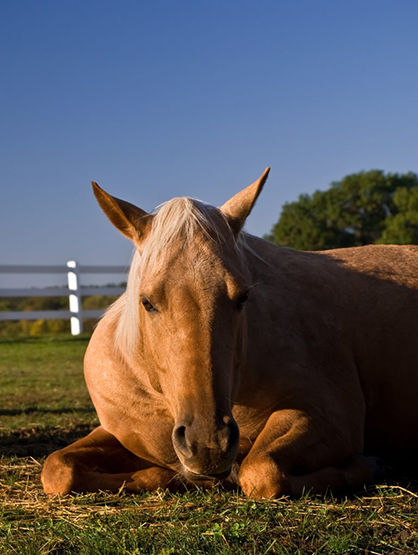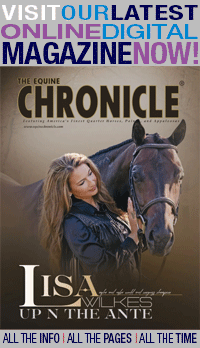Colic is the #1 Killer of Horses

Colic is the #1 killer of horses. Photo Credit: I-stock
(edited)
Equine Guelph has announced that the month of February, Canada’s coldest month, will be Colic Prevention Education Month. The next four weeks will be dedicated to increasing awareness of ways for caregivers to decrease the risk of colic in their horses. Although horses can be afflicted with gut pain in any season, the cold weather months are a challenging time – especially with impaction-related colic.
Here are three simple rules for preventing winter colic in your horse:
1. Increase forage in diet.
2. Keep your horse hydrated.
3. Maximize turnout and exercise.
With these easy tips in mind for the cold weather months, check out Equine Guelph’s highly popular online healthcare tool, the Colic Risk Rater, an interactive experience customized to your situation. Answer a simple questionnaire about your horse’s current management and watch the interactive dial move depending on your answer. Then, try redoing by changing your answers, using the three simple rules for preventing winter colic. You will be surprised to witness the rater’s dial move away from high colic risk as well as noticing the difference in your before and after scores!
Now that you have seen firsthand what these changes mean in reducing the risk of winter colic, the following explains why these three rules are so important.
Rule #1 – Increase Forage in Diet
Forage is critical for hind gut fermenters. An 1,100 pound horse should consume 2.0% to 2.5 % of their body weight per day in forage (22 to 28 lbs). Horses only produce saliva when they chew, therefore feeding forage ad-lib will increase the production of saliva – one of the best buffers for the horses’ digestive system and the most effective way to reduce the chance of ulcers and impaction colic.
Rule #2 – Keep your Horse Hydrated
While on the topic of impaction, 24/7 access to clean water is always imperative to keep all that forage moving. Remember, horses tend to drink less in the winter and impactions usually form with dry feed. February is typically Canada’s coldest month – with water in buckets freezing within 6-12 hours of filling – so be sure your horse doesn’t become dehydrated due to a frozen water bucket situation.
Rule #3 – Maximize Turnout and Exercise
Keep moving! Horses are not humans; they are trickle feeders designed to graze up to 18 hours a day while traveling 16 kilometres or more a day, while satisfying their need to feed. The bottom line is that a horse who is in a stall for most of the day is more prone to colic than one who is turned out. Many stable designers are thinking outside the box and developing track systems that encourage horses to move around in order to access resources. Improved motility of the digestive tract is just one of the health benefits.
Horses in consistent exercise routines such as school horses have been shown to be at a lower risk of colic. A change in activity level (frequency, duration or intensity) can increase the risk of colic. It is no coincidence that changes in diet and stabling often occur at the same time as changes in activity, which can also affect your horse’s colic risk.
The next Gut Health & Colic Prevention online short course scheduled will be a special offering exclusive to the racing industry and FREE for the first 150 Standardbred Canada members that register. For future offerings of the general course, stay tuned to TheHorsePortal.ca.
The FREE Colic Risk Rater is available on Equine Guelph’s education platform, TheHorsePortal.ca. Kindly sponsored by CapriCMW Insurance Services Ltd, the invaluable tool takes 10 minutes to complete, not only calculating your horse’s risk for colic, but provides a downloadable printout of prevention tips.
Equine Guelph is the horse owners’ and care givers’ Centre at the University of Guelph in Canada. It is a unique partnership dedicated to the health and well-being of horses, supported and overseen by equine industry groups. Equine Guelph is the epicentre for academia, industry and government – for the good of the equine industry as a whole. For further information, visit www.equineguelph.ca.










